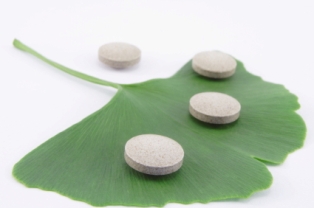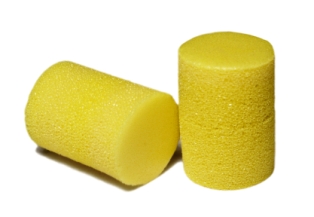3 Reasons Why Obesity Is… A Disease?
[ Note: This article was written by fitness and nutrition author Jon Benson. Jon is a good friend of mine so I have his permission to share it with you. I have personally reviewed Every Other Day Diet in addition to Jon's other products and I give them my highest recommendation. I'm an affiliate of Jon's and receive a portion of the proceeds made via the links in this article. A portion of the proceeds I receive are used to help expand Natural Health On The Web. This gives me the resources to expand so I can continue to create articles, blogs and offer you a free and reliable resource of natural health information. Enjoy the article. ]
I bet you didn’t know this …
Obesity…even being overfat… is a disease.
No, really.
At least that‚Äôs what several social groups wish you to believe. ‚ÄúSuffers Of Obesity‚ÄĚ is just one of those groups. Their entire stance is obesity (which, btw, can be only 30lbs or so over your ideal bodyweight) is an actual disease.
Well, is it?
Yes… and no.
Comedian Ricky Gervais has a hilarious go at this stance… that obesity is a disease. You sometimes have to laugh, you know? ; )
‚ÄúNo‚Ķ it‚Äôs not a disease‚Ķ it‚Äôs greed. You just love to eat,‚ÄĚ or so Gervais believes.
Well, in my first newsletter for 2010, a new decade with new ideas, I’m here to share a new idea with you:
We really need to redefine some words.
One of those words is ‚Äúdisease‚ÄĚ.
Case-in-point:  Wikipedia.com defines disease…
‚ÄúIn human beings, ‚Äúdisease‚ÄĚ is often used more broadly to refer to any condition that causes pain, dysfunction, distress, social problems, and/or death to the person afflicted, or similar problems for those in contact with the person. In this broader sense, it sometimes includes injuries, disabilities, disorders, syndromes, infections, isolated symptoms, deviant behaviors, and atypical variations of structure and function, while in other contexts and for other purposes these may be considered distinguishable categories.‚ÄĚ
Let’s think about that.
If you bump your knee against a sharp object, is this a new disease called ‚Äúbumpuskneeitis?‚ÄĚ Er‚Ķ no. It‚Äôs an accident. Sure, it may ‚Äôcause‚Äô a specific set of symptoms that could broadly (as in as broad as the back-side of a barn) be considered a ‚Äúdisease‚ÄĚ, but ‚Ķ no. It‚Äôs an accident with biological consequences.
Social problems?¬† So, if I decide to read 17 books on why my parents suck as a teenager and develop anti-social behavior, is this a ‚Äúdisease‚ÄĚ?¬† NO!¬† This is the angst of youth combined, perhaps, with poor parenting!¬† Sure, it can lead to mental issues that could be classified as ‚Äúdisease‚ÄĚ, but guess what?
It’s totally within your control. No one force-fed the books to the teen. And no one is force-feeding you, or anyone you know.
That decision is yours and yours alone… and anyone, repeat ANYONE on the face of planet earth can change their behaviors and attitudes toward food.
Okay, some more thoughts on disease:
Let me give you a few examples of what is typically thought of as ‚Äúdisease‚Ä̂Ķ
‚ÄĒ Leprosy
‚ÄĒ Cancer
‚ÄĒ Hypothyroidism
We’ll just take three… there are thousands as you know.
Now, we can all agree that these three states represent true ‚Äúdisease‚ÄĚ. The first you could catch by accident; the second is a combination of genetics, environment, and who-knows-what-else, and the third is almost always genetic.
One, cancer, is something you ‚Äėmay‚Äô be able to do something about. For example, lung cancer. 90% of lung cancer patients contract the disease from smoking.
Let’s just cover these 90%, shall we?
And folks, I’m asking for an open mind here…
Is lung cancer, in the case of the 90%, REALLY a disease?
Or is it a biological consequence?
Sure, ‚Äúcancer‚ÄĚ is a disease. But what caused it in this case? Something involuntary? Hardly. Something that could not be stopped?
No way.
The 90% caused it. Period.
Welcome to the real world.
So, I propose this:¬† We redefine ‚Äúdisease‚ÄĚ as an abnormal biological condition that we DO NOT have direct cause or effect over.
Airborne viruses: Disease.  Obesity: NOT a disease.
And yes, lung cancer in chain smokers:  NOT a disease; it’s a biological outcome. The end result should be treated as a disease, of course, but come on: Where is the responsibility folks?
Life, if you want to life it fully and without fear, is ALL about taking total responsibility. That’s empowerment. Anything less is… well, LESS.
In our example, lung cancer is no more a ‚Äúdisease‚ÄĚ than, say, me hitting myself over the head with a hammer every day and causing brain damage is a disease.
Brain damage (not self-induced) = disease.
Brain damage caused by self-inflicted hammer-hitting = biological consequence. In this case of sheer stupidity!
Now, one could (and many will) make the argument that I had a ‚Äúmental‚ÄĚ disease that caused me to WANT to hit myself over the head with a hammer‚Ķ but‚Ķ well‚Ķ
At this point we need to redefine the word ‚Äúdisease‚ÄĚ in my opinion. Here‚Äôs why:
First, if this were the case, I could say that all criminals have a disease.
They all have a mental disease that makes them want to kill, steal… you name it.
This may in fact BE true… we do not know… but do we hold them NOT responsible if it is? No, we do not.
And that brings us back to obesity.
Obesity and being overfat is not a disease folks…
‚ÄĒ‚ÄĒ >¬† it‚Äôs a biological consequence.
And, with the exception of the extremely ‚Äėrare‚Äô cases of total glandular dysfunction from birth, obesity‚Ķ your bodyweight‚Ķ is your responsibility.
Period. End of story.
Sorry, but that’s the way the ball bounces.
Am I being mean? No. I was obese. I have a right to speak my mind about it, and trust me:  My depression (a disease… sorta… some genetic, but a lot of it was caused by eating too much sugar) definitely aided in my obesity.
Then how come I’m not obese any more?
I found a better way to eat. I re-trained my body to crave this style of eating (and exercise) over stuffing myself with pizza and burgers every day.
Here’s what I use:
Click.Here‚ÄĒ‚ÄĒ‚ÄĒ‚Äď>¬† My No-Disease No-Obesity Wake-up Call!
It torches bellyfat‚Ķ and it reprograms the body and mind to use food as fuel‚Ķ especially if you use my ‚Äú7 Minute Body‚ÄĚ workout system (you can get it at 77% off after you pick up EODD on the page above‚Ķ ; )
So be brave. Be fearless. And be responsible.
Oh‚Ķ and be sure not to catch ‚Äúinternetemailitis‚Ä̂Ķ its a disease that causes you to want to check your email more than 10 times a day.
I have it. So be careful… may be contagious. : )
P.S. In my journey from obesity to total leanness I had to overcome ‚Äėreal‚Äô diseases, like pituitary failure from a high fever (i.e. viral pneumonia that almost killed me) and, yes, clinical depression (partially my fault; partially not‚Ķ i.e. half disease, half biological consequence.) So I have sympathy, believe me. But I also know what you can do once you have a solid plan in place and a determined mind.
Then no ‚Äúdisease‚ÄĚ can stop you‚Ķ at least the ones that do not kill you.
So go for it… be brave, be responsible… and be lean!
click.here ‚ÄĒ‚ÄĒ>¬† My No-Disease No-Obesity Wake-up Call!
Posted: January 1st, 2010 under Fitness.
Tags: Disease, Every Other Day Diet, Obesity, Weight Loss
Comments: none
















